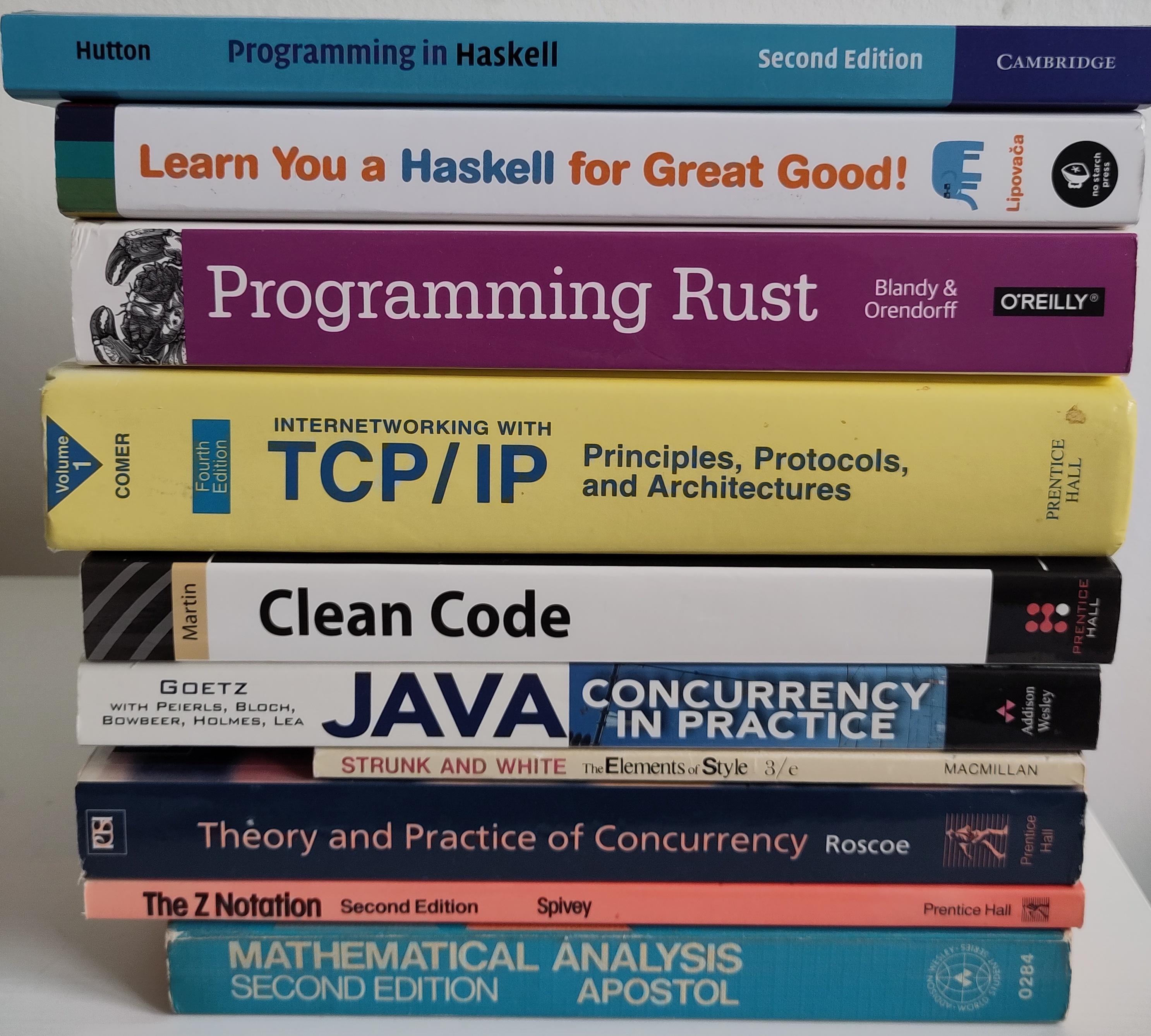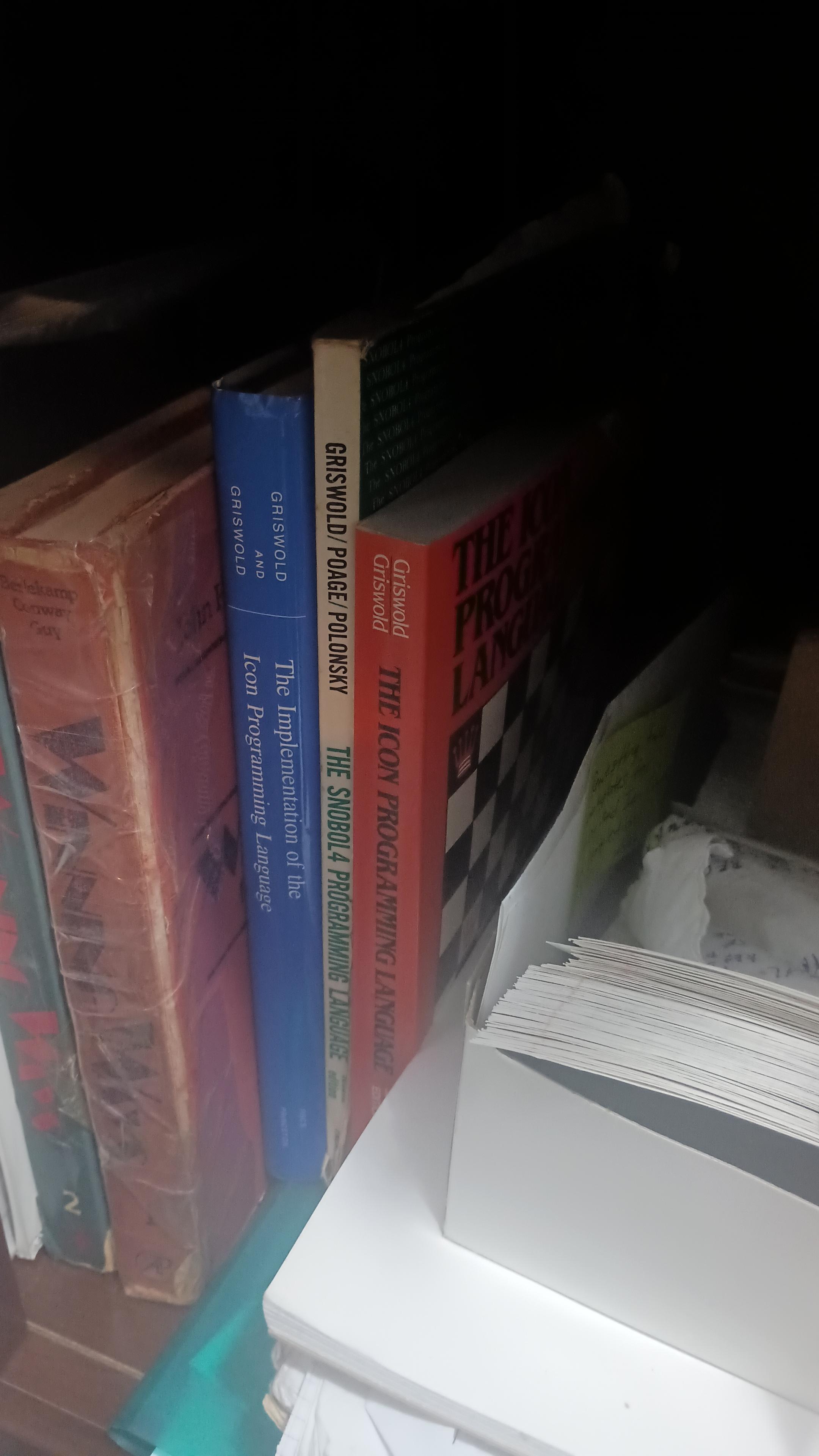Dave Gauer @ratfactor explains why he reads technical books. He expresses very well motivations I share but couldn't articulate, such as books having a single voice and stylistic convention.
Discussion
Loading...
Post
@amoroso @ratfactor
I couldn't agree more. I've always gained deeper understanding by reading programming language reference books.
I once read "Code Complete" cover to cover, even though I was already practising much of what was taught. It was just great to see the subject presented so clearly. (I also arranged for new joiners to be given a copy.)
After decades (!) of ignorance of some parts of TCP/IP, I finally found a book which explained the principles clearly (see the photo).
@underlap A book is a coherent journey through a topic led by a mentor.
@amoroso @underlap @ratfactor I wish books were less of a luxury item; they eat so much space but ebooks don't have the same accessibility, browsability, and dependability.
@mjd @weekend_editor @arclight @amoroso
I have that Icon paperback, too, but it has a blue cover. I've been excited to get to that one ever since I completed my SNOBOL journey. 📚
I have that Icon paperback, too, but it has a blue cover. I've been excited to get to that one ever since I completed my SNOBOL journey. 📚
@arclight These days I only read digital but buy a few significant print books, such as old titles not available online or that are particularly interesting.
bonfire.cafe
A space for Bonfire maintainers and contributors to communicate
Automatic federation enabled


